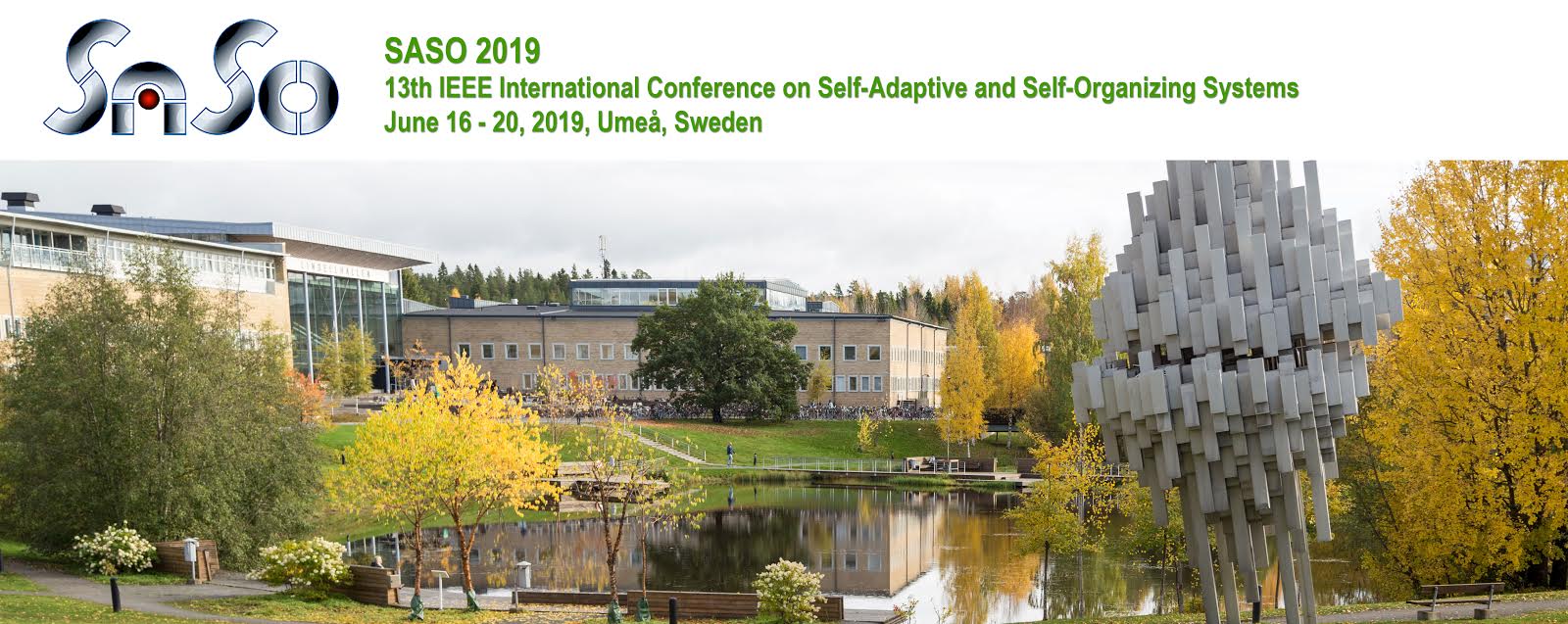Welcome to SASO 2019!
The 13th IEEE International Conference on Self-Adaptive and Self-Organizing Systems (SASO 2019) is held in Umeå, Sweden on June 16 – 20, 2019, as part of the Foundations and Applications of Self* Systems (FAS* 2019). It is co-located and has some shared activities with The 16th IEEE International Conference on Autonomic Computing (ICAC). Registration to SASO allows participation in SASO, ICAC and all shared activities, such as workshops and tutorials.
The aim of the Self-Adaptive and Self-Organizing systems conference series (SASO) is to provide a forum for the foundations of a principled approach to engineering systems, networks and services based on self-adaptation and self-organization. The complexity of current and emerging networks, software and services, especially in dealing with dynamics in the environment and problem domain, has led the software engineering, distributed systems and management communities to look for inspiration in diverse fields (e.g., complex systems, control theory, artificial intelligence, sociology, and biology) to find new ways of designing and managing such computing systems. In this endeavor, self-organization and self-adaptation have emerged as two promising interrelated approaches. Many significant research problems exist related to self-adaptive or self-organizing systems. A challenge in self-adaptation is often to identify how to change specific behavior to achieve the desired improvement. Another major challenge is to predict and control the global system behavior resulting from self-organization. Yet more challenges arise from the confluence of self-adaptation with self-organization. For instance, how do self-* mechanisms that work well independently operate in combination? How are meso-level structures formed which leverage micro-level behavior to achieve desirable macro-level outcomes, and avoid undesirable ones?
The thirteenth edition of the SASO conference embraces the inter-disciplinarity and the scientific, empirical and application dimensions of self-* systems; it thus aims to attract participants with different backgrounds, to foster cross-pollination between research fields, and to expose and discuss innovative theories, design principles, frameworks, methodologies, tools, and applications.
